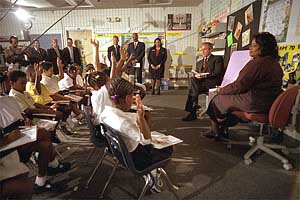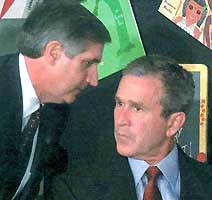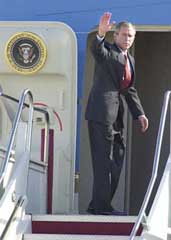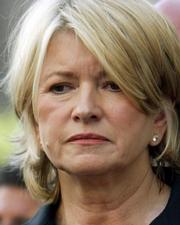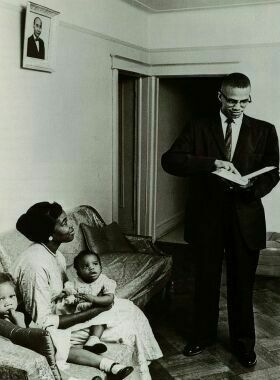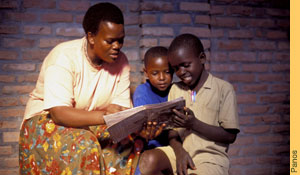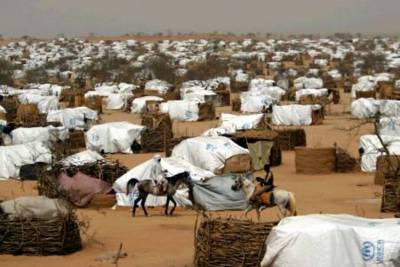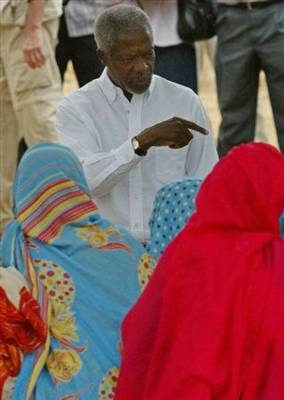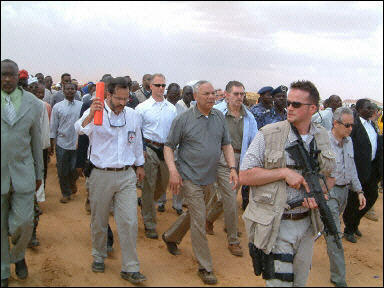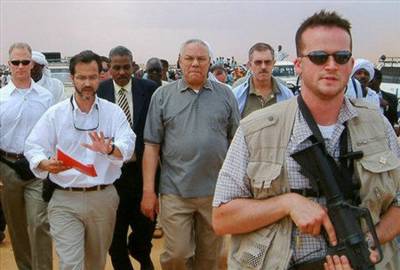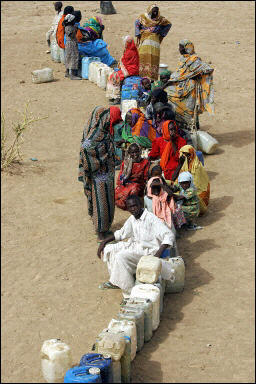Killing goes on as Sudan lies to world and defies UN
GETHIN CHAMBERLAIN
DIPLOMATIC CORRESPONDENT--The Scotsman
Key points
• Helicopter attacks continue as Sudanese government denies involvement
• Fresh attacks comes as international community pressurises Khartoum
• Human rights struggle to cope as armed men kidnap aid workersKey quote
"Despite a cease-fire signed in April between the Sudanese government and two rebel groups, fighting in Sudan’s Darfur region continues to displace civilians who say they are innocent victims" - UN spokeswoman
Story in full --SUDANESE government forces and Arab militia have launched a fresh wave of murderous attacks on black African villagers in Darfur in defiance of demands from the United Nations and the United States for an end to the fighting.
Fleeing refugees have described how villages in south eastern Darfur were bombed by Antonov aircraft and helicopter gunships before Janjaweed militia men in pick-up trucks and riding horses and camels swarmed into the villages, killing men, women and children, raping women, stealing property and animals, and setting houses alight.
Survivors say that the attacks took place last week, while Kofi Annan, the UN secretary general, and Colin Powell, the US Secretary of State, were visiting the country to demand an end to the genocide which aid workers have warned could result in the deaths of hundreds of thousands of people.
The UN High Commission for Refugees said more than 100 desperate people had fled the latest killings and braved heavy fighting to make it to a refugee camp at Kalma, near Nyala, the capital of South Darfur.
At least 40,000 people are living in the camp and aid agencies say they are struggling to provide food, water and medical care to the displaced people, who include many severely malnourished babies.
A UN spokeswoman said that the latest attacks on villages came as the Sudanese government and Janjaweed militia launched a fresh offensive against two rebel groups in breach of a cease-fire agreement signed in April. Rebel groups have warned that they will retaliate if the Khartoum regime continues to break the cease-fire.
She said: "Despite a cease-fire signed in April between the Sudanese government and two rebel groups, fighting in Sudan’s Darfur region continues to displace civilians who say they are innocent victims."
The UNHCR also released details of an attack on aid workers inside nearby Chad, where tens of thousands of refugees have fled.
On Sunday a group from Norwegian Church Aid, which is based in Iriba about 50km from the Chad-Sudan border, were kidnapped by armed men as they drove from the nearby Touloum camp to Iridimi camp a short distance from the town. They were later released and their vehicle stolen. The identity of the attackers is not known.
Yesterday John Bercow, the shadow international development secretary who has recently returned from an all-party trip to Khartoum and Darfur, called on the British government to consider backing military action to halt the genocide.
"Only when you apply pressure to the regime will you get results," he said. "It is a mistake to rule out military action.
"The government of Sudan are not gentlemen who abide by the Queensberry Rules. You have to bring pressure to bear on them."
He said he had written to Hilary Benn, the International Development Secretary, to ask what had become of the Prime Minister’s pledges to consider a no-fly zone in the region.
Tony Blair yesterday reiterated his claim that Britain was doing all it could to end the crisis.
"We’re doing our level best in Africa," he said. "It’s a very serious situation. The situation in Sudan is still very, very serious."
At a meeting of the African Union yesterday Kofi Annan warned African leaders that the humanitarian crisis in Darfur may lead to "a catastrophe that could destabilise the region" if they did not take action.
"The ruined villages, the camps overflowing with sick and hungry women and children and the fear in the eyes of the people should be a clear warning to all of us," he said.
In response, the African Union said it would send 300 troops to protect refugees in Sudan and Chad and to protect military observers monitoring the supposed cease-fire in Darfur.
The deployment was reluctantly accepted by the Sudanese government.
• READERS of The Scotsman have now donated £49,000 to the UNICEF Children of Sudan Emergency appeal - nearly five times the amount anticipated when the newspaper joined forces with the charity.
UNICEF says it is optimistic that the total will break through the £50,000 barrier before the end of the week.
Denise McNiven, fundraising manager for the charity in Scotland, said: "This will make an enormous difference to the children that are surviving in such difficult conditions."
UNICEF is using the money to supply water, repair and install hand pumps, distribute blankets, shelter, jerry cans, cooking pots, bowls and many other basic relief items.




